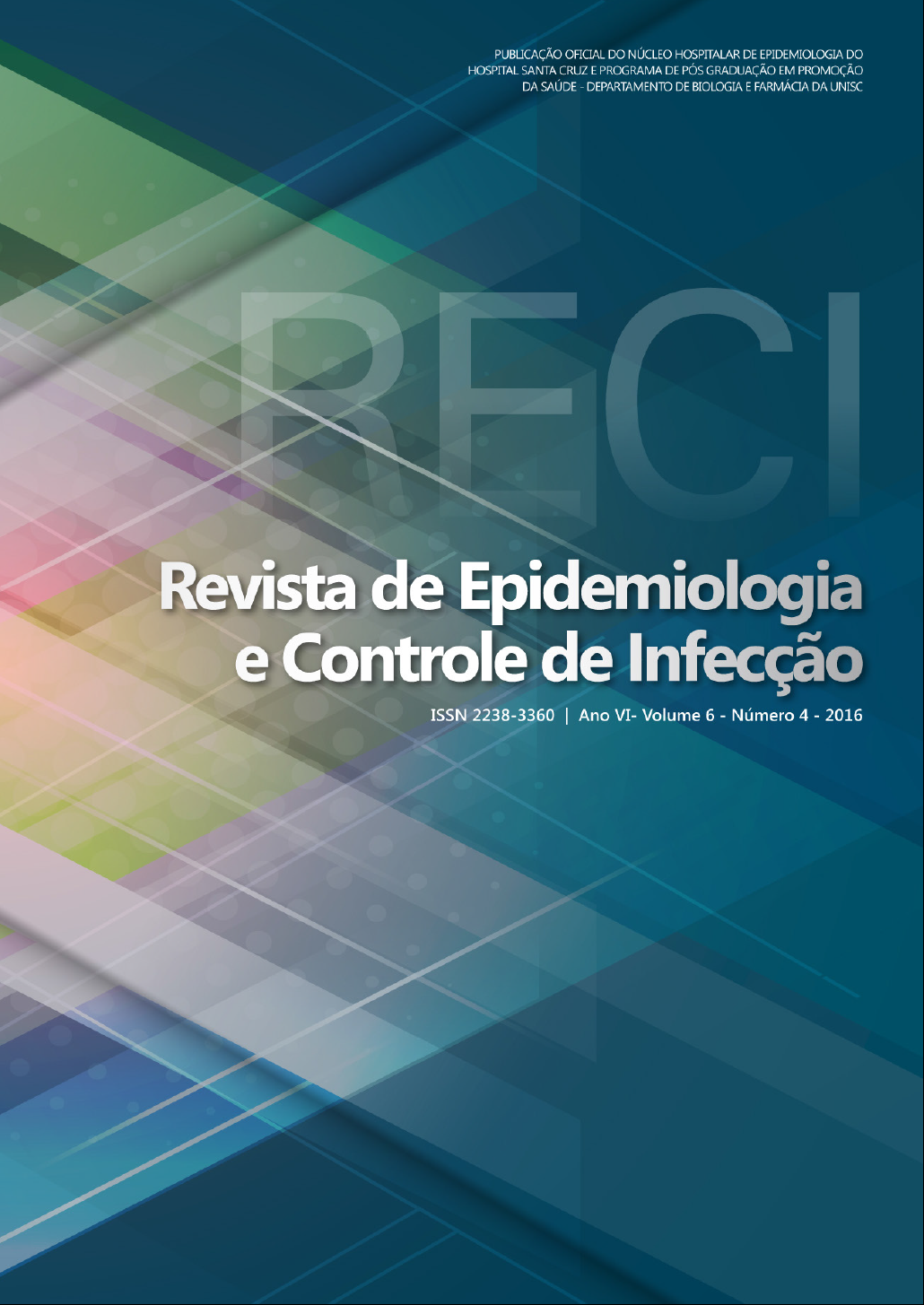Association between periodontitis and factors sociodemographic, mass index body and lifestyle features
DOI:
https://doi.org/10.17058/reci.v6i4.8290Abstract
Background and objectives: periodontal diseases are more prevalent in the population, which makes fundamental identify the epidemiological aspects related in this diseases. Thus, was assessed whether lifestyle features, sociodemographic factors and nutritional status were correlated with the presence or absence of periodontitis, as well as its severity. Methods: this is a cross-sectional study with 77 subjects (aged 40-70 years), of both genres, volunteers from clinic Dentistry Course at the University of Santa Cruz do Sul. Was realized a questionnaire with the medical history, habits of smoke and alcohol, socioeconomic and anthropometric data. Clinically, were performed examinations of probing depth, bleeding on probing and clinicalattachment loss of all teeth in the mouth of the patients that were divided into three groups: periodontal health, moderate periodontitis and severe periodontitis. Results: the average age of subjects was 52.32±6.86 years, mostly females. The prevalence of severe periodontal disease was aged between 50-59 years, as well as among those subjects with overweight and obesity. The consumption of smokers and drinkers was small (18% and 11% respectively). Was verified a significant association between periodontitis and socioeconomic status, and in classes A-B1, the majority of subjects were in good health (61%), while in the C2 classes most had severe periodontitis (47%). Conclusion: the less favored population financially had greater commitment periodontal and even with association with periodontitis, the other variables showed no significant difference.Downloads
Downloads
Published
How to Cite
Issue
Section
License
The author must state that the paper is original (has not been published previously), not infringing any copyright or other ownership right involving third parties. Once the paper is submitted, the Journal reserves the right to make normative changes, such as spelling and grammar, in order to maintain the language standard, but respecting the author’s style. The published papers become ownership of RECI, considering that all the opinions expressed by the authors are their responsibility. Because we are an open access journal, we allow free use of articles in educational and scientific applications provided the source is cited under the Creative Commons CC-BY license.


